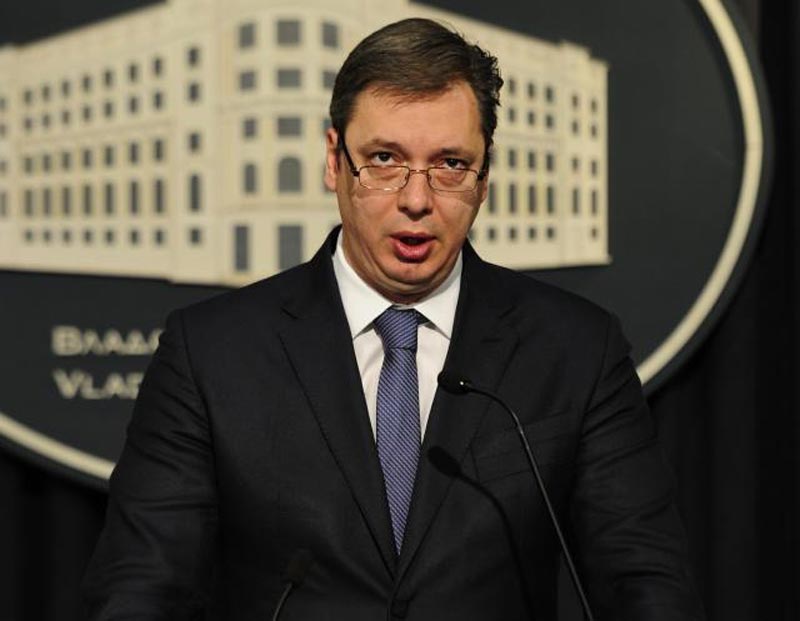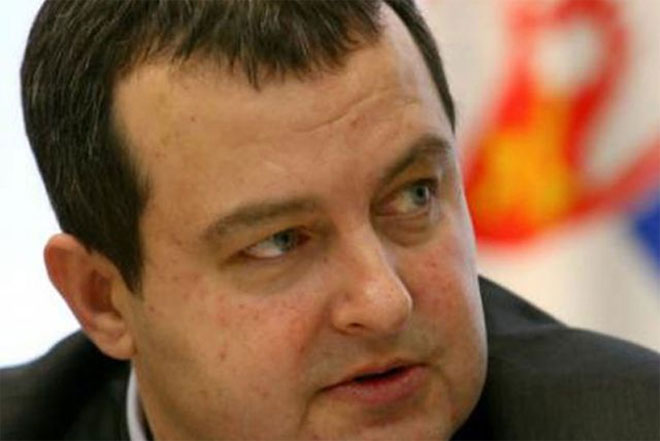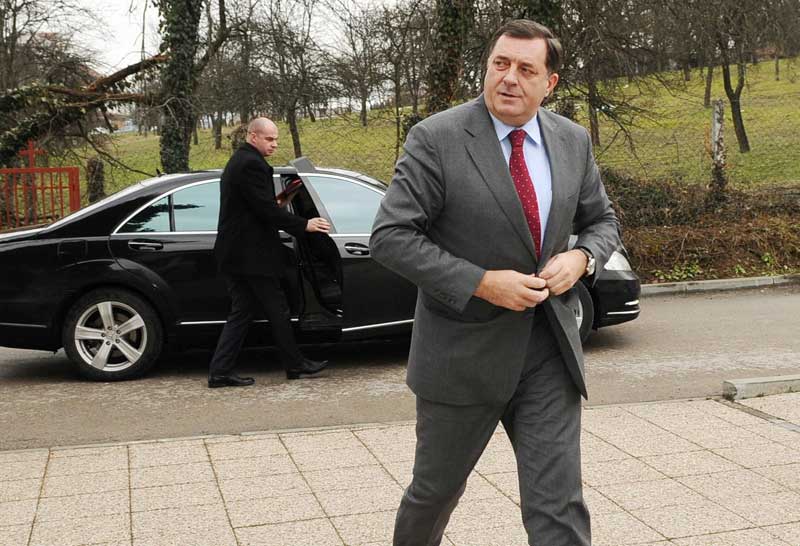
BEOGRAD – Prime Minister Aleksandar Vucic told a press conference after a meeting his cabinet on Friday in Belgade that Serbia is “at a crossroads.”
“Serbia is at a crossroads, political and economic, after years that passed in senseless wars, plundering privatizations, corruption, and a multi-year recession. We were able to stop a further decline of the country, we have excellent results in the first quarter of this year,” said Vucic, and continued:
“In the first three months there has been no new borrowing, but not because of our excellent results, but because of the changes in the euro-dollar exchange rate, so public debt has been reduced by 316 million.”
However, he continued – “new political turbulences then came before the Hague (Tribunal), which is ending the political rather than legal role that it had.”
“One of the three goals was to lead to reconciliation of the peoples in the area of the former Yugoslavia that has lost tens of thousands of its sons and daughters in bloody conflicts. That basic goal has not been fulfilled in any way. The whole time it (tribunal) has been hammering nails into the coffin of the sleeping Balkans,” said the prime minister.
Vucic pointed out that the Hague Tribunal passed many judgments “that others did not speak about” as well as those that have not been spoken about in Serbia, which according to him “best paints the Hague Tribunal’s picture – that it act as a political court, not as a legal institution.”
According to Vucic, after the announcing of the guilty verdict in the Karadzic trial his government “came out with a most responsible, most clear, and most serious response for the public.”
“Others in the region, and other officials in Europe did not. We said that we would not go into the content of the verdict. We said only one sentence, that we will not allow the judgment to undermine the Serb Republic and Serbia. These are our legal and constitutional obligations,” said Vucic.
He added that only 48 hours after this “reconciliatory message, when we created no drama – we only said that Serbia is important as a state and the RS as an entity” came “the attacks on Serbia.”
The prime minister further stated said that Serbia “responded to the reactions to the Karadzic verdict, and said they were not in the spirit of reconciliation, peace and stability in the Balkans.
“This story is over as far as we are concerned, and we are still ready to talk to Bosniaks, and to believe in a future where there can be no place for political, legal or any other judgment against Serbs,” he said, adding that “some found the 40-year prison sentence too little, and attacked Serbia because this punishment was handed down to Karadzic.”
“1,040 years would not have been enough for them,” said Vucic.
The prime minister then commented on the acquittal of Vojislav Seselj to say it was “clearly a political process from the beginning – when they were looking for him, and when he was released, and when they were looking for him again.”
“Can you imagine what kind of disgrace we would have been exposed to had we acted on their orders 25 days ago when they wanted him back, and they knew already what the verdict would be. I am proud that the government protected the laws and the dignity of the Republic of Serbia and the dignity of citizen Seselj. I have no personal animosity towards him, I wish him and his family all the best, we have a problem with his policy, not with the verdict. We will oppose his policy that pushes Serbia into the past and instability, troubles and problems and economic woes,” said Vucic.
He then told “citizens of Serbia and Serbs wherever they are” that “we will hardly see others respect our victims the way we have an obligation to respect theirs.”
“I am quite certain that nobody will be held responsible for the murder of the four children on Petrovacka Cesta (road),” he said, in reference to the killings that occurred during Croatia’s 1995 Operation Storm that targeting Serbs, and added:
“It is known that the planes took off from Split, nobody has been held responsible for that, and as long as it is their business, nobody will be. We need to learn that our tears have their parents only in Serbia. That remains ours and we remember our victims, but it is important to show the Serbian largeness, that we can and know how to talk to everyone.”
“We want to understand others, as we waited and hoped that others would us. We no longer expect that. We will not make ourselves seem worse than we are for that reason. It would represent a great danger for Serbia if irresponsible forces gained the support of the people. I am not speaking only about elections, but also about the streets,” said Vucic.
According to him, it is “disastrous that some leaders offend minorities only because they belong to another party.”
“Slovaks, Hungarians, Romanians, have a right to belong to any other party. We must wash such stains from our face in the future,” he said.
The prime minister then said that “his call” was perhaps the last warning to citizens because he “knows well how something can be easily appealing and how something can easily and quickly derail one and lead one into the abyss.”
“Will I be hearing from others, ‘we know where you were 20 years ago’… that shows they live in the past and cannot switch to a new gear,” said Vucic.
Vucic also advised “people” to consider “whether they want Serbia to be stable and safe, or go back to the time of uncertainty.”
Speaking about the Seselj ruling. Vucic said that the leader of the SRS party had spent “11 or 12 years there (in Hague’s detention)” and that it would be “ridiculous to talk about the Hague’s attitude toward him.”
“Did they know when elections would be held as they announced the content of the verdict… they knew, just as they knew its contents,” said the prime minister. (B92)



